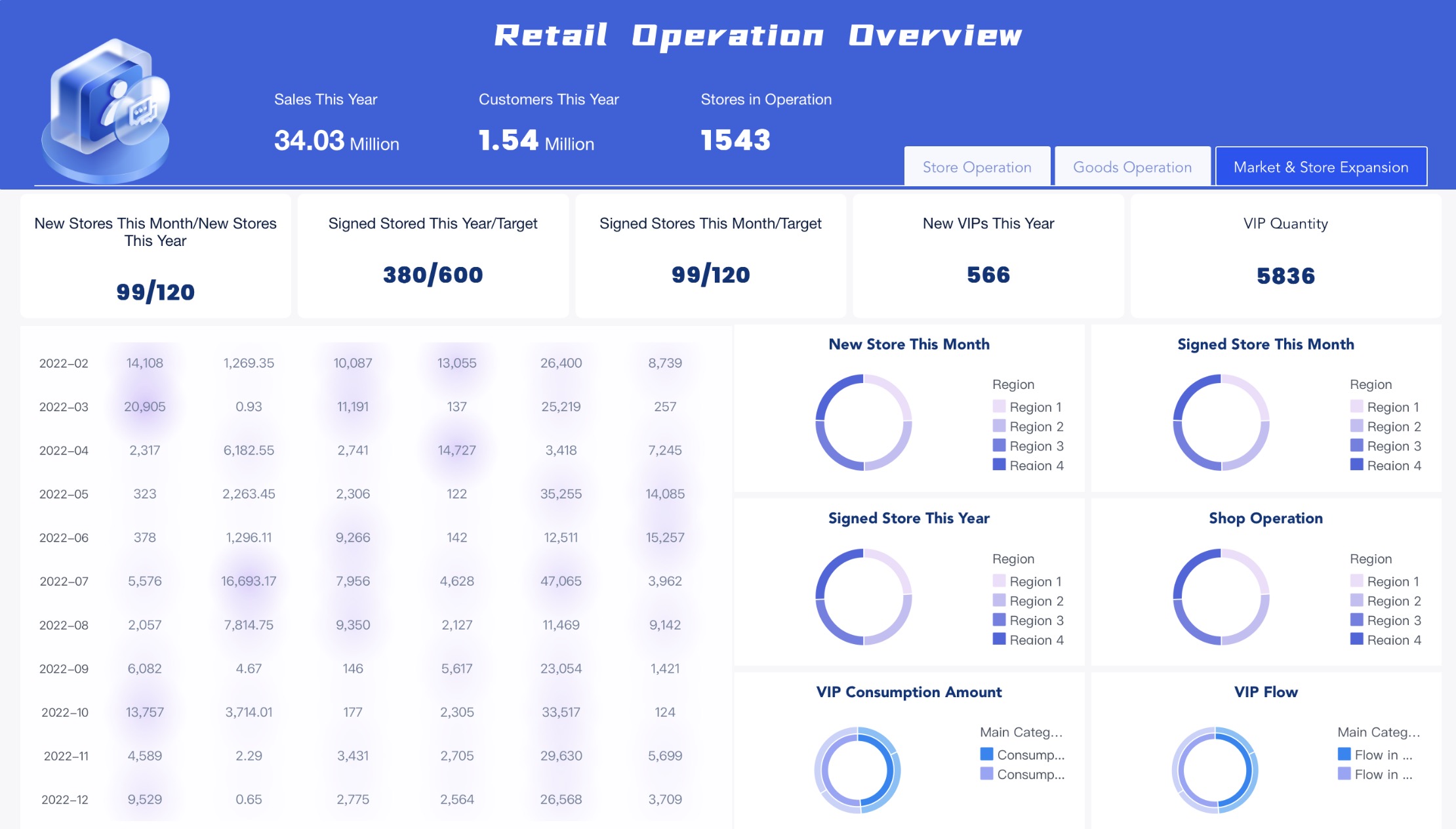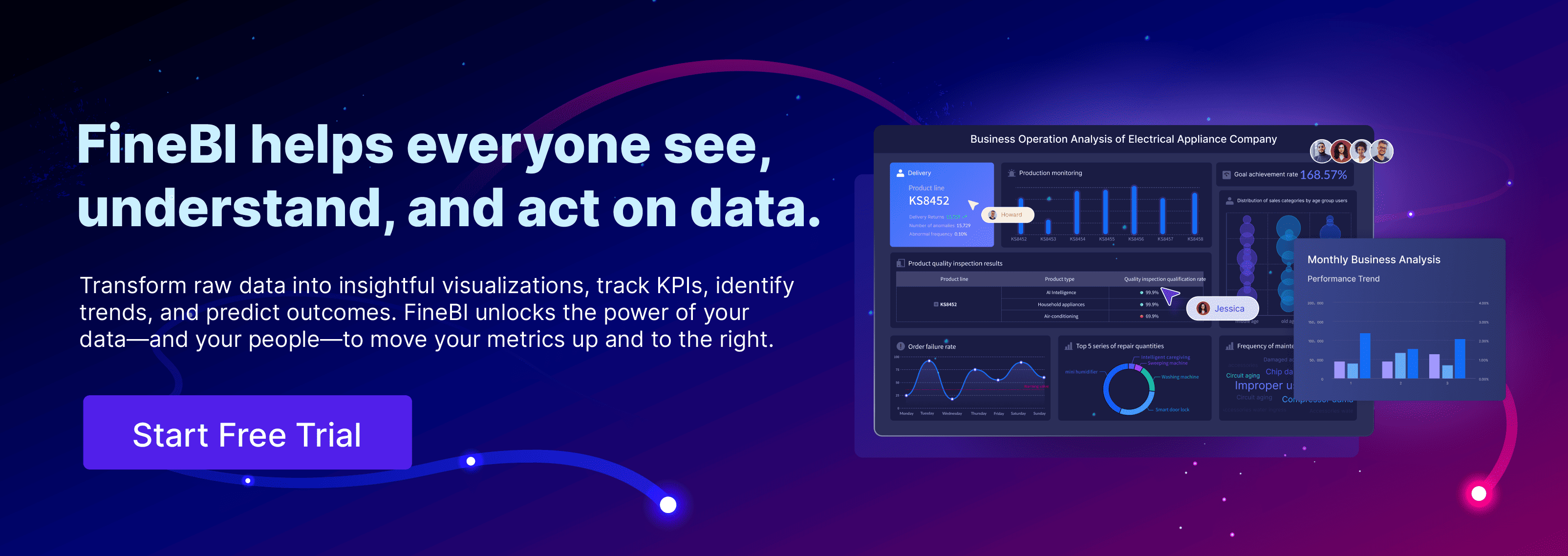


Database Marketing empowers you to harness customer data for more personalized and effective marketing strategies. In today's fast-paced business environment, understanding this approach is crucial. It allows you to make data-driven decisions, ensuring quantifiable and measurable results. By analyzing customer behavior and preferences, you can tailor your marketing efforts to resonate with your audience, ultimately enhancing customer relationships and boosting sales. This systematic approach not only improves marketing efficiency but also provides valuable insights into customer needs and trends.
Understanding Database Marketing
Definition of Database Marketing
Database Marketing involves using customer data to create personalized marketing strategies. You gather and analyze information to tailor messages that resonate with your audience. This approach enhances engagement and boosts sales.
Key components of database marketing
Several key components define Database Marketing:
- Data Collection: You gather data from various sources like purchase history and online interactions.
- Data Analysis: Data Analysis this data to understand customer behavior and preferences.
- Segmentation: Divide your audience into segments based on shared characteristics.
- Personalization: Craft personalized messages for each segment to improve relevance and impact.
Historical context and evolution
Database Marketing has evolved significantly. Initially, it focused on direct mail campaigns. Over time, it integrated digital platforms, leading to the development of Customer Data Platforms (CDPs). These platforms allow you to manage and activate data across multiple channels, enhancing your marketing efforts.
How Database Marketing Works
Data collection and management
Effective Database Marketing starts with data collection. You gather data from various touchpoints, including social media, websites, and in-store interactions. Proper management ensures data accuracy and accessibility. This process forms the foundation for creating targeted marketing strategies.
Personalization and targeting strategies
With data in hand, you can develop personalization and targeting strategies. By understanding customer preferences, you tailor messages to meet their needs. This approach not only increases engagement but also improves customer retention. Data-driven marketing allows you to measure campaign effectiveness and make informed decisions.
Types of Database Marketing
Direct Mail Marketing
Direct Mail Marketing involves sending physical promotional materials to your customers. This traditional form of Database Marketing remains effective when executed correctly.
Advantages and disadvantages
Advantages:
- Tangibility: Customers receive a physical item, which can create a lasting impression.
- Targeted Reach: You can tailor messages to specific segments, enhancing relevance.
Disadvantages:
- Cost: Printing and postage can be expensive.
- Response Rate: Often lower compared to digital methods.
Examples of successful campaigns
Successful campaigns often use creative designs and personalized messages. For instance, a retail company might send customized discount coupons based on purchase history. This approach can boost customer engagement and drive sales.
Email Marketing
Email Marketing uses customer data to send targeted messages directly to inboxes. It is a cornerstone of modern Database Marketing due to its cost-effectiveness and reach.
Best practices for email marketing
- Segmentation: Divide your audience based on behavior or preferences.
- Personalization: Use customer names and tailor content to their interests.
- Automation: Schedule emails to send at optimal times for engagement.
Case studies
Case Study: A leading e-commerce platform increased its conversion rates by 20% through personalized email campaigns. By analyzing customer data, they crafted messages that resonated with individual preferences, demonstrating the power of Database Marketing.
Social Media Marketing
Social Media Marketing leverages databases to enhance engagement on platforms like Facebook, Instagram, and Twitter. It allows you to connect with your audience in real-time.
Role of databases in social media marketing
Databases help you understand your audience's preferences and behaviors. This insight enables you to create content that resonates and encourages interaction. By analyzing metrics, you can refine strategies to improve engagement.
Examples of effective strategies
Effective strategies include using targeted ads based on user data. For example, a fashion brand might use Database Marketing to show ads for new collections to users who previously engaged with similar products. This targeted approach increases the likelihood of conversions.
Importance of Database Marketing
Enhancing Customer Relationships
Building loyalty and trust
Database Marketing plays a crucial role in building loyalty and trust with your customers. By using customer data, you can create personalized experiences that make customers feel valued. When you tailor messages to individual preferences, you show that you understand their needs. This approach fosters a sense of connection and encourages repeat business.
Personalization and customer satisfaction
Personalization is at the heart of customer satisfaction. With Database Marketing, you can deliver content that resonates with your audience. By analyzing customer behavior, you craft messages that align with their interests. This strategy not only enhances engagement but also boosts satisfaction. Customers appreciate when you address their specific needs, leading to stronger relationships.
Improving Marketing Efficiency
Cost-effectiveness
Database Marketing improves cost-effectiveness by allowing you to target specific segments. Instead of broad campaigns, you focus on those most likely to respond. This targeted approach reduces waste and maximizes your marketing budget. By reaching the right audience, you increase the chances of conversion without unnecessary spending.
Targeted marketing efforts
Targeted marketing efforts become more efficient with Database Marketing. You gain insights into customer preferences and behaviors, enabling precise targeting. This method enhances your ability to deliver relevant messages. As a result, you improve customer acquisition and retention. By focusing on actionable insights, you ensure that your marketing strategies are both effective and efficient. targeted marketing efforts
Benefits of Database Marketing

Increased ROI
Database Marketing significantly boosts your return on investment (ROI). By targeting specific customer segments, you ensure that your marketing efforts reach those most likely to engage. This precision reduces waste and maximizes the impact of your campaigns.
Measuring success and performance
To measure success, you track key performance indicators (KPIs) such as conversion rates and customer acquisition costs. These metrics provide a clear picture of how well your strategies perform. Regular analysis helps you identify areas for improvement, ensuring that your marketing remains effective and efficient.
Examples of ROI improvement
Consider a company that uses Database Marketing to segment its audience based on purchase history. By sending personalized offers to high-value customers, the company sees a 30% increase in sales. This targeted approach demonstrates how Database Marketing can enhance ROI by focusing on the most promising opportunities.
Better Customer Insights
Database Marketing offers you valuable insights into customer behavior. By analyzing data, you gain a deeper understanding of what drives your audience. This knowledge allows you to tailor your marketing strategies to meet their needs more effectively.
Understanding customer behavior
Understanding customer behavior involves examining patterns in purchase history, browsing habits, and engagement levels. This analysis reveals what products or services resonate with your audience. With this information, you can adjust your offerings to better align with customer preferences.
Data-driven decision making
Data-driven decision making empowers you to make informed choices. By relying on data, you reduce guesswork and increase the likelihood of success. This approach ensures that your marketing strategies are grounded in reality, leading to more effective campaigns and improved customer satisfaction.
Challenges in Database Marketing
Data Privacy Concerns
Data privacy stands as a significant challenge in Database Marketing. You must navigate complex regulations to ensure compliance and maintain customer trust.
Regulations and compliance
Regulations like the GDPR and CCPA play a crucial role in protecting consumer data. These laws require you to handle data responsibly, ensuring only authorized users access it. Compliance is not optional; it's essential for maintaining credibility and avoiding hefty fines. Understanding these regulations helps you respect customer privacy while effectively utilizing data.
Strategies to address privacy issues
To address privacy concerns, you should implement robust data protection strategies. Encrypt sensitive information and regularly update security protocols. Transparency with customers about data usage builds trust. By adopting these practices, you can mitigate risks and enhance your Database Marketing efforts.
Data Quality and Management
Ensuring high-quality data is vital for successful Database Marketing. Poor data quality can lead to ineffective campaigns and wasted resources.
Ensuring data accuracy
Accurate data forms the backbone of effective marketing strategies. Regularly audit your databases to identify and correct errors. Use automated tools to streamline this process. By maintaining data accuracy, you ensure that your marketing messages reach the right audience.
Overcoming data silos
Data silos can hinder your ability to create a unified customer view. Integrate data from various sources to overcome this challenge. Use Customer Data Platforms (CDPs) to consolidate information. This integration allows you to develop more cohesive and targeted marketing strategies.
Future Trends in Database Marketing

Integration of AI and Machine Learning
The integration of AI and machine learning is transforming database marketing. These technologies enable you to analyze vast amounts of data quickly and accurately, providing insights that were previously unattainable.
Predictive analytics
Predictive analytics uses AI to forecast future customer behaviors based on historical data. By leveraging this technology, you can anticipate customer needs and preferences, allowing you to tailor your marketing strategies accordingly. This proactive approach enhances customer satisfaction and increases the likelihood of conversion. Nearly all marketers are investing in AI this year, highlighting its growing importance in data-driven marketing.
Automation in marketing processes
Automation streamlines marketing processes, reducing manual effort and increasing efficiency. With AI, you can automate tasks such as email campaigns, social media posts, and customer segmentation. This automation ensures timely and relevant communication with your audience, improving engagement and retention. By adopting AI-driven automation, you enhance your marketing efficiency and ROI, as noted in the Database Marketing Benefits report.
Omnichannel Marketing Strategies
Omnichannel marketing strategies focus on providing a seamless experience across multiple channels. By integrating data from various sources, you create a unified view of the customer, enabling consistent and personalized interactions.
Seamless customer experience
A seamless customer experience involves delivering consistent messaging and branding across all touchpoints. Whether customers interact with your brand online, in-store, or through social media, they should receive a cohesive experience. This consistency builds trust and loyalty, encouraging repeat business. By utilizing database marketing, you ensure that your messaging aligns with customer expectations, enhancing their overall experience.
Cross-channel data integration
Cross-channel data integration involves consolidating information from different platforms to create a comprehensive customer profile. This integration allows you to understand customer behavior across channels, enabling more targeted and effective marketing strategies. By breaking down data silos, you gain valuable insights into customer preferences and behaviors, allowing you to deliver personalized experiences that resonate with your audience. This approach not only improves customer acquisition and retention but also maximizes the impact of your marketing efforts.
Case Studies and Examples of Database Marketing
Successful Database Marketing Campaigns
Analysis of strategies used
Successful database marketing campaigns often rely on precise data analysis and strategic segmentation. By examining customer data, you can identify specific segments that align with your marketing goals. For instance, a retail company might analyze purchase history to target customers who frequently buy seasonal products. This approach allows you to craft messages that resonate with each segment, increasing the likelihood of engagement.

"Database marketing is all about leveraging data to make smarter marketing decisions." This quote highlights the importance of using data to guide your strategies. By understanding customer behavior, you can tailor your campaigns to meet their needs effectively.
Lessons learned
From these campaigns, you learn the value of personalization and timing. Personalized messages create a stronger connection with your audience. When you send these messages at the right time, you enhance their impact. Additionally, analyzing metrics by segment provides insights into the unique needs of different customer groups. This understanding helps you refine your strategies for future campaigns.
Companies Leading in Database Marketing
Innovative approaches
Leading companies in database marketing often adopt innovative approaches to stay ahead. They use advanced technologies like AI and machine learning to analyze vast amounts of data quickly. This analysis enables them to predict customer behavior and tailor their marketing efforts accordingly. By integrating these technologies, you can enhance your ability to deliver personalized experiences.
"Think of it as having a detailed map of your customer base." This analogy emphasizes the power of data in guiding your marketing strategies. With a clear understanding of your audience, you can pinpoint who to target and how to engage them effectively.
Impact on business growth
The impact of effective database marketing on business growth is significant. Companies that leverage data-driven strategies often see increased customer retention and higher sales. By focusing on the most valuable segments, you maximize your marketing efforts' effectiveness. This targeted approach not only boosts ROI but also strengthens customer relationships, driving long-term growth.
Database marketing stands as a pivotal tool in today's business landscape. It enhances marketing efficiency, boosts customer acquisition and retention, and delivers personalized experiences. By leveraging segmentation, personalization, and automation, you can significantly improve customer engagement and conversion rates. As technology evolves, the future of database marketing promises even more sophisticated strategies. Embrace these advancements to stay ahead, ensuring your marketing efforts remain effective and impactful.
FAQ
Database marketing involves using customer data to create personalized marketing strategies. You gather and analyze information to tailor messages that resonate with your audience. This approach enhances engagement and boosts sales.
Database marketing is crucial because it allows you to make data-driven decisions. By understanding customer behavior and preferences, you can tailor your marketing efforts to resonate with your audience. This leads to improved customer relationships and increased sales.
By using customer data, you can create personalized experiences that make customers feel valued. When you tailor messages to individual preferences, you show that you understand their needs. This approach fosters a sense of connection and encourages repeat business.
Increased ROI: Target specific customer segments to maximize the impact of your campaigns.
Better Customer Insights: Gain a deeper understanding of what drives your audience.
Improved Marketing Efficiency: Focus on those most likely to respond, reducing waste and maximizing your marketing budget.
Data Privacy Concerns: Navigate complex regulations to ensure compliance and maintain customer trust.
Data Quality and Management: Ensure high-quality data to avoid ineffective campaigns and wasted resources.
AI and machine learning enable you to analyze vast amounts of data quickly and accurately. These technologies provide insights that were previously unattainable, allowing you to anticipate customer needs and tailor your marketing strategies accordingly.
Database marketing companies provide crucial data for crafting successful marketing strategies. They help improve marketing efficiency, customer acquisition, and retention by offering accurate customer data.
Track key performance indicators (KPIs) such as conversion rates and customer acquisition costs. These metrics provide a clear picture of how well your strategies perform. Regular analysis helps you identify areas for improvement, ensuring that your marketing remains effective and efficient.
Continue Reading About Database Marketing
2025 Best Data Integration Solutions and Selection Guide
Explore top data integration solutions for 2025, enhancing data management and operational efficiency with leading platforms like Fivetran and Talend.
Howard
Dec 19, 2024
Best Data Integration Platforms to Use in 2025
Explore the best data integration platforms for 2025, including cloud-based, on-premises, and hybrid solutions. Learn about key features, benefits, and top players.
Howard
Jun 20, 2024
Best Data Integration Vendors for Seamless Workflows
Discover the top 20 data integration vendors of 2025 for seamless workflows. Compare tools like Talend, AWS Glue, and Fivetran to optimize your data processes.
Howard
Jan 22, 2025
Customer Data Integration: A Comprehensive Guide
Master customer data integration to enhance business operations by combining data from multiple sources for a comprehensive customer view.
Howard
Sep 07, 2024
Data Validation Techniques: Secrets to Achieving Precision and Accuracy
Master data validation techniques from manual to machine learning methods. Ensure data quality with our practical steps.
Howard
Aug 06, 2024
Data Pipeline Automation: Strategies for Success
Understand definition and key components of data pipeline automation. Explore the essential strategies for successful data pipeline automation.
Howard
Jul 18, 2024



